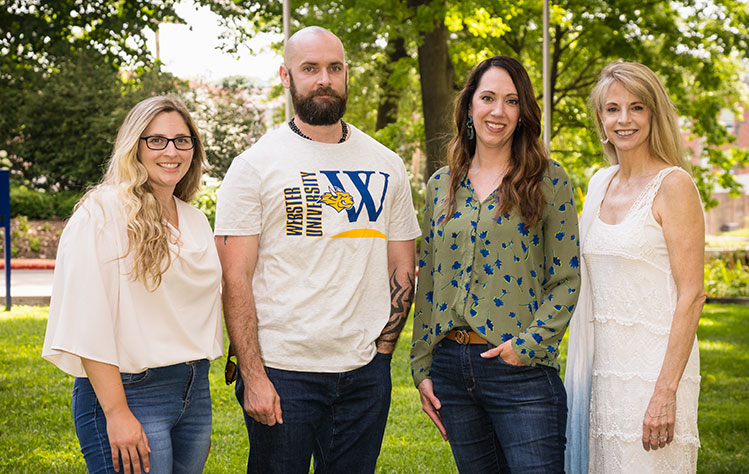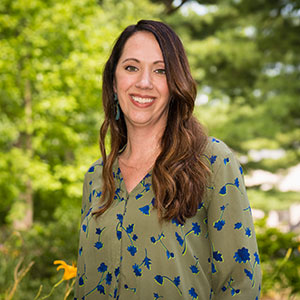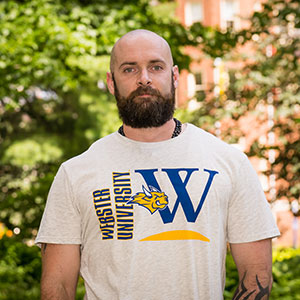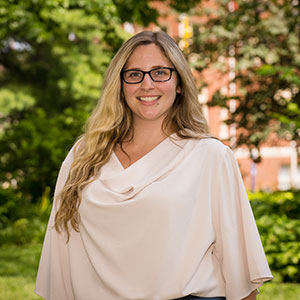Webster Graduate Students Develop New Counseling Network to Help First Responders
July 08, 2022
 Several clinical mental health counseling students created a new support group that
will focus on counseling for first responders. The First Responder Wellness Group
(FRWG) will work with other counseling students and first responders to develop the
skills to help workers who respond to crises.
Several clinical mental health counseling students created a new support group that
will focus on counseling for first responders. The First Responder Wellness Group
(FRWG) will work with other counseling students and first responders to develop the
skills to help workers who respond to crises.
The idea for FRWG grew from a paper written by a Webster graduate student that identified a growing need for counseling for those on the front lines. The paper looked at “compassion fatigue” among police officers and health care workers.
 “Compassion fatigue (CF) is similar to burnout. The difference is that CF is caused
by secondary traumatic stress (aka vicarious trauma) whereas burnout generally stems
from lack of organizational support,” said graduate counseling student Lori Bosma.
“I was familiar with CF in caregivers of persons with mental or chronic illnesses,
but when the summer of 2020 brought protests, COVID deaths and societal conflict with
the professionals we depend on to help and keep us safe, I wondered about their mental
health. How are these first responders coping? And maybe more importantly, how are
they able to continue to serve society as a duty of their position, while remaining
mentally well after dealing with trauma, contentious situations and (what seemed like)
an unsupportive administration?”
“Compassion fatigue (CF) is similar to burnout. The difference is that CF is caused
by secondary traumatic stress (aka vicarious trauma) whereas burnout generally stems
from lack of organizational support,” said graduate counseling student Lori Bosma.
“I was familiar with CF in caregivers of persons with mental or chronic illnesses,
but when the summer of 2020 brought protests, COVID deaths and societal conflict with
the professionals we depend on to help and keep us safe, I wondered about their mental
health. How are these first responders coping? And maybe more importantly, how are
they able to continue to serve society as a duty of their position, while remaining
mentally well after dealing with trauma, contentious situations and (what seemed like)
an unsupportive administration?”
CF appeared to be deeper than burnout, she said. A thorough review of the related literature backed up this notion, so she began writing the paper. “I also reached out to other program students who may have similar interests,” Bosma said. “We are learning and sharing our findings, notably that compassion fatigue is treatable, and mental health counselors can advance this field to help the many related folks.”
Associate Professor of Counseling Stacy Henning said while she was editing Bosma’s paper, she heard stories from people close to her that echoed the themes in the paper.
“During the pandemic, I heard from relatives and friends who were working as nurse practitioners, ER nurses, physicians, care technicians and elderly care facilitators that there were high levels of front-line responders who were leaving their jobs because of the high amount of stress they were encountering,” Henning said.
She said she had initially assumed medical care takers were prepared for the potential death and severe illness of their patients. But when she mentioned this to a nurse practitioner friend, the friend responded: “I was never trained to deal with a 27-year-old patient, healthy by all other accounts and who arrived at the hospital with minor symptoms, who would then be dead two weeks later. And this is happening frequently. The potential illness and even death that we could end up spreading to our families and friends was just too much.”
Shortly after Bosma’s paper was published, she and Henning heard from multiple organizations that wanted to learn more about the research. Bosma’s paper was submitted and published in the FBI Training Division’s June “Law Enforcement Bulletin.”
 It was clear from the reaction that there was an unserved need among first responders,
Henning said. The idea for FRWG was born. Bosma teamed up with counseling students
Thomas Crees and Lindsey Rohlman to form the new organization. Crees is a former law
enforcement officer who now partners with local law enforcement agencies in crisis
intervention as well as homeless advocacy and outreach.
It was clear from the reaction that there was an unserved need among first responders,
Henning said. The idea for FRWG was born. Bosma teamed up with counseling students
Thomas Crees and Lindsey Rohlman to form the new organization. Crees is a former law
enforcement officer who now partners with local law enforcement agencies in crisis
intervention as well as homeless advocacy and outreach.
They initially will work with other Webster counseling students who want to counsel first responders, and with current Webster students who are already first responders and wish to transition into a role where they will council their peers. They also are hopeful to work with other university disciplines who have a shared interest, Henning said.
 The group meets monthly for planning sessions and has already attracted three more
students who hope to join the organization when the next academic year starts in August.
The group meets monthly for planning sessions and has already attracted three more
students who hope to join the organization when the next academic year starts in August.
“At this time, the network is not setting up counseling sessions but resources for this population,” Henning said. “Eventually, this network hopes to provide group support counseling to this population with faculty oversight, and in the long-term we hope to grow strong enough to include groups outside of Webster.”
To learn more about FRWG, Contact Stacy Henning at stacyhenning67@webster.edu or Lori Bosma at loriwatson@webster.edu.
Editor's Note: This story was updated on Aug. 18, 2022 to reflect a name change to the group. It previously was named First Responders Advocacy and Wellness Network (FRAWN).
This story was updated on Nov. 17, 2022 to reflect that Lori Bosma Watson's name was legally changed to Lori Bosma.
